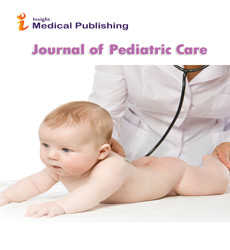Abstract
A Need Identified...A Curriculum Created...Improving Procedural SedationTraining
Introduction: Procedural Pediatric Sedation (PPS) has been increasingly provided by pediatric intensivists over the past decade. Pediatric Critical Care Medicine fellowship guidelines require that fellows become proficient in PPS but do not state how this proficiency should be attained. A national survey confirmed that training in procedural sedation was not standardized. A structured PPS curriculum has been created that ensures fellows receive appropriate didactic, clinical practice and simulation experience to prepare them for PPS credentialing and practice.
Methods: 4-week curriculum encompassed structured readings from a variety of clinical references. Fellows observed and then performed PPS under direct attending guidance using the Entrustable Practice principles. Fellows also participated in 1 high-acuity/low-frequency simulation session during their rotation with another 3 sessions scheduled throughout their 2nd and 3rd year of fellowship. Rotation concluded with an exam covering sedation principles that demonstrated knowledge as part of the credentialing process.
Results: Implementation of mandatory rotation in PPS resulted in PCCM fellows feeling much more comfortable in performing this procedure. All recent graduates have been credentialed in PPS without additional training (4). Fellows have become involved in PPS research resulting in 2 poster presentations at national conferences, 1 article published in PCCM, 2 textbook chapters and 3 CME webinar presentations. PPS training also resulted in job offers of first choice for all recent graduates.
Discussion: Implementation of a standardized curriculum facilitated learning of a new procedural skill by PCCM fellows. Completion of the proctored PPS curriculum provided documentation that allowed fellows to obtain sedation credentials during fellowship and in their future positions.
Author(s):
Kevin G Couloures
Abstract | Full-Text | PDF
Share this

Google scholar citation report
Citations : 130
Journal of Pediatric Care received 130 citations as per google scholar report
Abstracted/Indexed in
- Google Scholar
- China National Knowledge Infrastructure (CNKI)
- Cosmos IF
- WorldCat
- Geneva Foundation for Medical Education and Research
- Secret Search Engine Labs
Open Access Journals
- Aquaculture & Veterinary Science
- Chemistry & Chemical Sciences
- Clinical Sciences
- Engineering
- General Science
- Genetics & Molecular Biology
- Health Care & Nursing
- Immunology & Microbiology
- Materials Science
- Mathematics & Physics
- Medical Sciences
- Neurology & Psychiatry
- Oncology & Cancer Science
- Pharmaceutical Sciences

